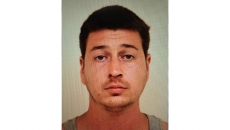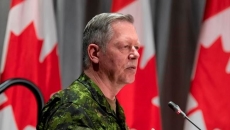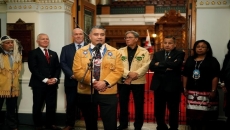The Yukon government is considering plans for a supervised injection site and a safer supply of drugs for substance users after 13 people fatally overdosed between January and mid-July, compared with six for all of last year.
Health Minister Pauline Frost said Friday that most of the deaths are linked to opioids as street drugs become more toxic because of a disruption of the regular supply during the pandemic.
The territory will expand drug testing capacity and provide drug users with kits for crack cocaine and injection use as well as methamphetamine pipes as part of its harm-reduction approach, she said.
"We need to keep working to reduce the stigma of a drug-related death. We need to acknowledge the grief felt by families and friends and remember those who have died or have been left with a permanent injury as a result of a drug overdose," Frost said.
Enhanced training for use of naloxone, a medication to reverse overdoses, will begin next week in Watson Lake, where August will be proclaimed Overdose Awareness Month in recognition of the severity of the overdose crisis.
The community has also created a harm-reduction advisory board as part of its response to what Frost calls a "devastating" situation that is affecting other parts of the territory as well, particularly Whitehorse.
"We are exploring how a supervised consumption site might look and serve the needs of high-risk Yukoners," she said. "We are exploring what a safer supply chain might look like for our territory, a public health approach that is being pursued by other jurisdictions that are facing such challenges."
Frost implored Yukoners to be compassionate of those battling drug addiction.
"This is not the time to shame people or pass judgment. It is a time to rally around our communities, our friends and our neighbours who need our support," she said.
Kwanlin Dun First Nation Chief Doris Bill said families are being destroyed by the overdose crisis, which has been exacerbated by the COVID-19 pandemic as isolated people use drugs alone after being repeatedly urged to use with people around and have a naloxone kit available.
Indigenous people are disproportionately affected by the overdose crisis but there aren't enough treatment or housing options, Bill said.
"The current lack of available treatment out of territory is challenging for some when they are motivated to seek help. Not everyone wants to do treatment in the Yukon. Lack of space and lack of funding are issues."
Bill said an increase in overdose deaths requires a collaborative response to understand the impact on drug users, families, law enforcement and first responders but it's the government's responsibility to implement safe options for support and treatment, especially for youth.
"There has been way too much pain and loss in our communities due to the deaths of these individuals and I want to acknowledge that pain and loss today."
A spokeswoman for the Health Ministry said she could not immediately give information on how much funding the territory provides for treatment and whether it would be increased.
Hawkfeather Peterson, president of the BC/Yukon Association of Drug War Survivors, said advocacy by drug-user groups has led to change in other jurisdictions and that's what's needed in Yukon, where no such organization exists.
"You have to fight for room at the table and we did that in British Columbia," she said of the province with the country's highest number of overdose deaths — over 5,000 since 2016.
Yukon chief coroner Heather Jones said seven people fatally overdosed in each of 2016 and 2017 and nine died in 2018 before six drug users died last year.
The territory's chief medical health officer Dr. Brendan Hanley said free naloxone kits have been distributed around the territory since 2016 but the addition of increasingly toxic fentanyl in many street drugs is making substance use more dangerous than ever during the pandemic.
He said loneliness may be driving people to take more risks and use dangerous combinations of drugs, leading to tragic consequences.






